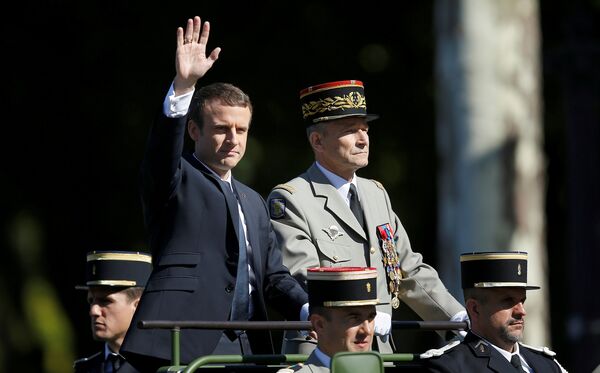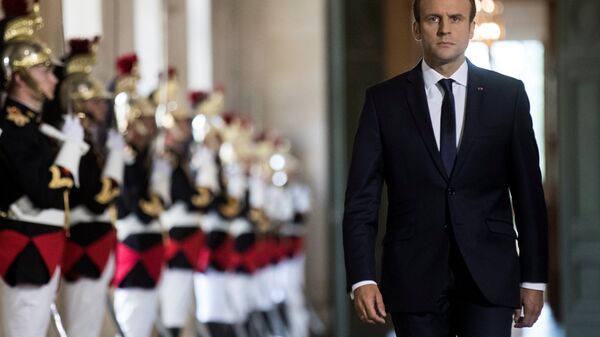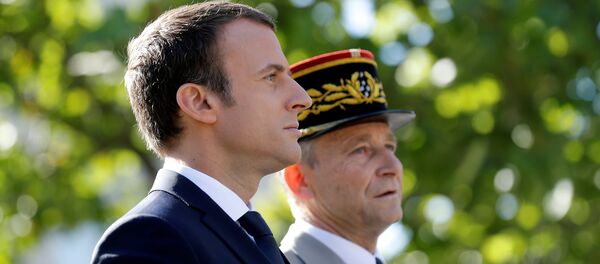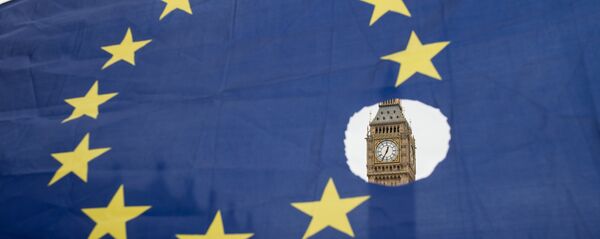A new Ifop poll, commissioned by the Journal du Dimanche newspaper, has found that Macron's rating has slipped 10 percentage points to 54 percent – the sharpest decline over the first three months of a French presidency since Jacques Chirac, whose rating dropped 15 points between May and July of 1995.
Macron-appointed Prime Minister Edouard Philippe's approval rating also dipped by 8 percent, down to 56 percent.
Sokolov recalled that "less than three months had passed since the evening of May 7, when Macron, bathing in rays of glory and adoration at the Louvre," handily defeated Marine Le Pen in the presidential run-off race, receiving 66.1 percent of the vote. It was also "a little more than a month after June 18, when, following the second round of elections for the National Assembly, Macron's party received an absolute majority of 350 out of 577 mandates."
Against this background of convincing victories of yesterday, the rebuke to the president via the ratings drop could be seen as unexpected, the journalist admitted. "The event was doubly significant, considering that no force majeure circumstances (economic crisis, major terrorist act, military catastrophe, etc.) took place during this period. Outwardly, everything looked calm enough," Sokolov stressed.
In the French media, the cause for the ratings drop has been explained by Macron's demarche with General Pierre de Villiers, the Armed Forces Chief of Staff who resigned following a dispute with the president over planned cuts in military spending. Having learned of plans for 850 million euros in cuts, de Villiers complained that the army had already "given everything away," and resigned, telling a parliamentary committee that he would not let himself be "screwed like that."

"On the one hand, General de Villiers was right," Sokolov wrote. "From his first days in office, Macron had made gestures about restoring French greatness, including the greatness of its military – up to and including [the public stunt] of descending on a wire from a helicopter onto a missile submarine and letting out a salvo."
Indeed, the journalist noted, posing for media photo opportunities, while simultaneously cutting the military budget are "somewhat contradictory." Cutting down the budget of the Ministry of the Interior, just as the police get off their feet in the fight against a very real terrorist threat, is no less contradictory."

"On the other hand, Macron too was right. The general's declaration, made with a military frankness, was something that had not happened in France for a long time, and the president had no other choice but to dismiss de Villiers."
And here the question about who will "screw" who is crucial, Sokolov stressed. "If the army and the police lose their instinct of obedience (and something like this has already occurred), this could be the last call for the head of state."
"Here, it is worth taking into account that having come to power on a wave of hope, and against a backdrop of a crisis facing the entire political system, Macron did not really do anything terrible in practical terms. The truth is much worse than that: he did nothing at all, continuing to make spectacular speeches against pompous scenery, as if the election campaign did not end on May 7, but will continue eternally."
Characterizing Macron as a "product of advanced political spin machines," Sokolov suggested that the politician "has only done that which he knows how." And it worked before. "This young man, coming from obscurity, managed to nullify the elite of the Fifth Republic, and to gain control over the country – power that seemed unlimited. Hence the plans to consolidate the National Assembly, the throne speech at Versailles, and the generally strong awareness of his own greatness."
Only the president failed to take one important circumstance into account, according to the journalist. "Indeed, by the combined efforts of political structures, leading media, NGOs and the so-called deep state, a great deal can be achieved. Very crudely stated, this idea was formulated a long time ago by [French-born Russian-American journalist] Vladimir Pozner, who once said that 'if you constantly show a horse's ass on television, its ratings will go off the scale.'"
"But neither Pozner nor anyone else could say what a horse's rear end that has been raised on a pedestal would do next. Political spin machines have many skills in their arsenal, but these are limited to putting their desired candidate on the throne. What that person will do after ascending to the throne is a question for the [politician] himself; some come to more or less learn the art of governance. No one is born a master, after all. Others, however, do not learn this art. Judging by the sociological reconnaissance taking place in France right now, so far the learning process there is proceeding with great difficulty, if at all," Sokolov concluded.



